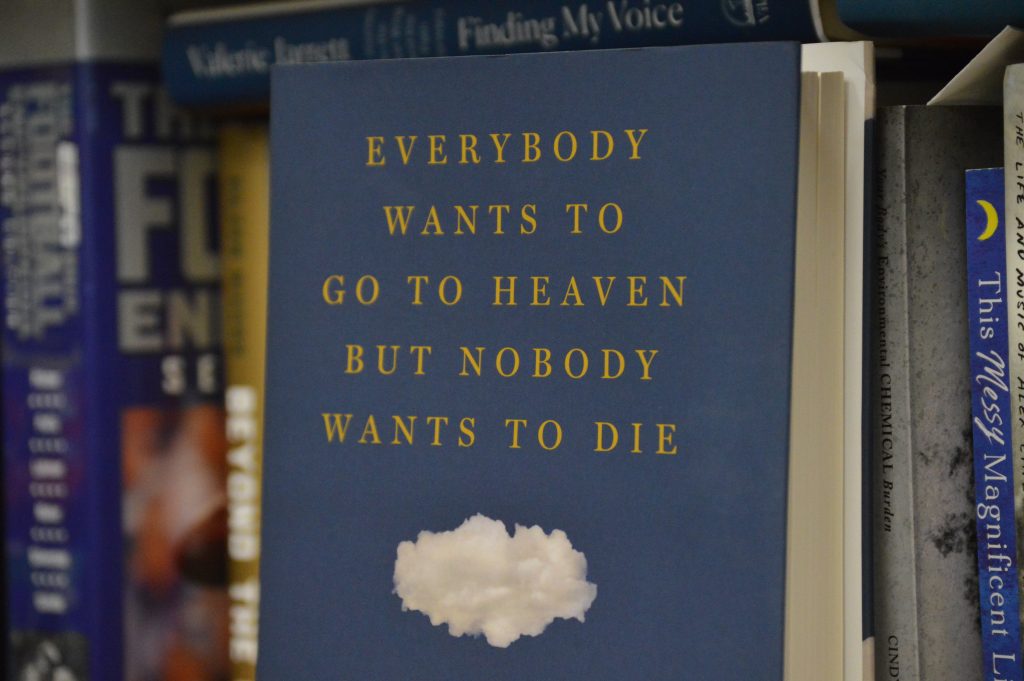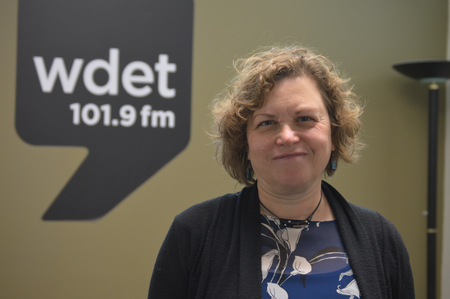Changing Attitudes Toward Death: Health Care, Grief and End-of-Life Planning
“People are changing the way that they want to do death, if you will.”


With all the constant reminders of the things that divide us, there’s one thing that all of us have in common — death.
We will all die.
It’s just about impossible to wrap your mind around, the idea that someday you won’t be here anymore. How in the world do you plan for something that is unfathomable?
Click on the player above to hear bioethicist and author Jonathan Moreno, Modern Loss founder Rebecca Soffer, and end-of-life doula Merilynn Rush.
In the new book “Everbody Wants to Go To Heaven But Nobody Wants to Die,” preeminent bioethicists Amy Gutmann and Jonathan D. Moreno say that planning for our own demise is the best and only way to empower ourselves when it comes to leaving this world.
They write: “How do we want to die? The question is both strange and obvious. It does not ask us ‘whether’ but ‘how.’ The two questions are yoked together in the human psyche. Our primordial will to live and anticipatory anxiety over dying easily overwhelm our ability to address how we want to die. The irony of course is that we can exercise some degree of control only over how, not whether, we will die. Yet we often find it hard to move beyond the shadow question that might somehow promise eternal life to the practical one that asks us to consider how we want to approach the circumstances of our death. When we do thoughtfully probe ourselves and our loved ones about how we want to die, we discover that our preferences differ, sometimes quite unexpectedly.”
“The background of the story is the way that our relationship with our doctors has changed,” Moreno, a professor at the University of Pennsylvania, tells Stephen Henderson on Detroit Today, noting that most American died at home before World War II. “The more the doctors can predictably do to extend our lives, the better the tech gets, the more people would like to know what their doctors have in mind for them.”
“It has created a situation where the situation of tech is very technological. Hospitals are the most technologically advanced places in most communities, by far,” he continues, noting the ethical questions of whether and when to extend life despite the physical, emotional, and financial costs of doing so.
Rebecca Soffer is the co-founder of the website Modern Loss, and co-author of the book “Modern Loss: Candid Conversations About Grief. Beginners Welcome.“
Soffer says “the rug was pulled out from under my feet” when she lost both of her parents when she was in her early 30s. “All of a sudden my life started in the after: before loss and after loss,” she says.
While most people in Soffer’s social circle hadn’t yet experienced this type of loss, she did have one other friend in the same situation. At first, the duo started a monthly dinner meet-up for people dealing with the loss of a parent. And soon after, Modern Loss was born.
“Grief is a 24/7 thing that takes on different forms every single year,” says Soffer. “These are uncomfortable subjects. But it’s is the one common denominator that every human being shares. So why aren’t we talking about it?”
That resistance to talking about death and grieving is something that Merilynn Rush noticed here in Michigan as well. She is an end-of-life doula trainer with Lifespan Doulas, a home funeral guide and green burial consultant. Rush founded Ann Arbor Death Cafe to respond to that problem by connecting people who are interested in talking about these subjects.
“People are changing the way that they want to do death, if you will,” says Rush. “We are looking at the ways we’ve done things and realizing that’s not giving me meaning anymore. And one of the biggest things that people are changing is wanting to have more control over how we celebrate someone’s life.”
